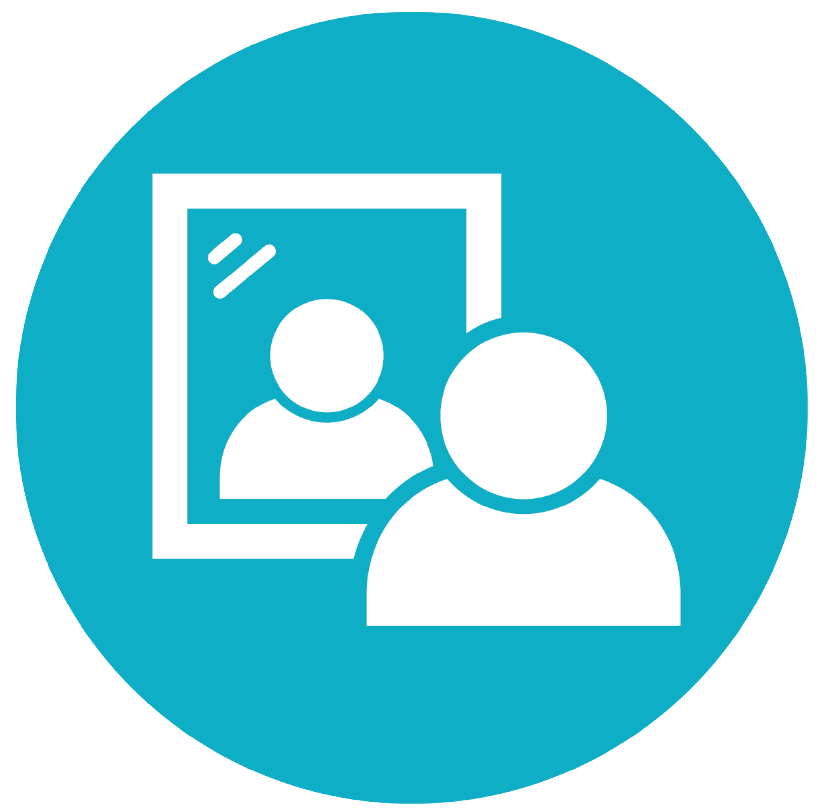Work-Based Learning
What is Work-Based Learning?
Work-Based Learning Overview
Work-Based Learning (WBL) provides students with a continuum of career-related experiences that extend classroom learning to support the development of career goals in preparation for education and employment beyond high school.
WBL provides students with a solid foundation on which to build. Through a continuum of experiences, students
- Increase awareness of their post-secondary options.
- Explore possible career pathways.
- Prepare for their future.
FCPS students participate in different methods of Work-Based Learning for career awareness, career exploration, and career preparation experiences.
Work-Based Learning in FCPS and Common Misconceptions
Work-Based Learning is:
- Based on individual career goals and interests.
- Directly tied to what is learned in related courses.
- Performed in collaboration with local businesses and organizations.
High-Quality Work-Based Learning (HQWBL) experiences
HQWBL experiences provide students with career exploration and career preparation opportunities to support their development of Academic and Career Plans (ACP). The Virginia Department of Education (VDOE) qualifies an experience as high quality when it is founded in
- Individual career interests
- Personal success goals
- Directly tied to their classroom instruction
The successful completion of a HQWBL experience may serve as an option for meeting the standard diploma graduation requirement and acceptable for inclusion in the College, Career, and Civic Readiness Indicator (CCCRI) for School Accreditation.
FCPS students participate in different methods of Work-Based Learning for career awareness, career exploration, and career preparation experiences. These methods may include the following types of WBL experiences:

Career Awareness
- Exposure to a variety of career pathways and skill development training programs.
- Increase awareness of personal interests and talents related to different careers.
Guest Speakers
Guest Speakers are experienced professionals who donate their time to share insights into the world of work, their passion for their industries, and provide career and academic advice.
The student is expected to:
- Research the speaker's place of employment and career field to create a list of questions.
- Listen to how classroom and enrichment experiences prepare individuals for specific career paths.
- Listen for connections between the speaker's line of work and their own passions and career interests.
- Reflect on the speaker's experience.
Work Based Tours
Work Based Tours, whether in-person or virtual, provide an opportunity to learn about the careers available with a particular employer, or within the larger industry, and to observe the work performed by people in those careers.
College and Career Fairs
College and Career Fairs are structured events that provide students access to a wide range of careers, higher education, and training programs with a focus on awareness and development of social capital.
Instruction 2 Industry: A Career Expo for High School Students is an annual event created specifically for students enrolled in the school divisions of the northern Virginia region.
Information Interviews
Informational Interviews, whether in-person or virtual, are structured conversations between a student and an industry professional. These are guided by the student's individual career goals and interests and include a conversation on both academic and professional pathways.
Job Shadows
Job Shadows, whether in person or virtual, provide opportunities for students to observe a workplace and to have one-on-one and/or group interactions with employees.
The student:
- Learns about the nature of jobs and work environments as well as the education and training required to enter them.
- Interacts with employees, records observations, and reflects on experiences.
At-A-Glance:
- Not an approved High-Quality WBL experience
- Related to classroom instruction of enrolled course
- Unpaid
- No option to earn course credit
- Suggested Grade Levels 9-12

Career Exploration
- Explore career pathways to identify occupation-specific knowledge and skills.
- Engage in career-connected learning to advance interests and goals related to career pathways.
Internships
Internships are workplace based, hands-on extended learning experiences for the development of a student's individual career goals and interests.
The student:
- Is in a real-world setting to develop and practice career-related knowledge and skills.
- Actively completes tasks and job duties related to the workplace following a training plan developed jointly by the student, WBL instructor, and employer.
At-A-Glance:
- High-Quality WBL Experience
- Paid or unpaid
- Suggested Grade Levels 11 & 12
- Enrolled in a related CTE course
- Must meet hourly requirements for completion (50 hours minimum)
- Must be 16 years old and provide transportation to and from the work site
Service Learning
Service Learning is an academic process of blending specific in-class instruction, an individual's personal career interests and goals, and civic engagement to identify, plan, initiate, and implement a project to benefit a greater community need.
The student:
- Goes beyond community service to identify an interest or community need and develop and complete a project.
- Completes structured activities before, during, and after the experience to reflect and self-assess.
- Must meet all six elements for the project to be recognized as a High-Quality WBL experience:
- Career Interests and Goals
- Connects to Curriculum
- Impactful
- Authentic
- Intentional
- Reflective
At-A-Glance:
- High-Quality WBL Experience
- Related classroom instruction
- Unpaid
- No option to earn course credit
- Suggested Grade Levels 9-12
- Enrolled in a related high school course
Externships
Externships are extended job shadows pairing students with industry professionals in the workplace to explore the students' individual career interests and goals.
The student:
- Understands that work is not delegated and projects are not assigned.
- May ask questions, observe, and get a feel for the work environment.
- Must complete a minimum of 40 hours.
- If the experience is under 40 hours, then it is classified as a Job Shadow experience and does not meet HQWBL, On-Time-Graduation, or CCCRI requirements.
At-A-Glance:
- High-Quality WBL Experience
- Unpaid
- At least 40 hours
- No option to earn course credit
- Suggested Grade Levels 9-12
- Enrolled in a related high school course
Career Mentorship
Career Mentorships are structured, ongoing, school-coordinated opportunities. Students are paired with industry professionals who can encourage and guide a student's success in career exploration and post-secondary options.
The student:
- Is paired with an industry professional for a long-term relationship focused on growth and development.
- Documents hours working with a mentor with any combination of the following:
- discussion/reflection
- observation of workplace
- collaborative research
- exploration of a career field
At-A-Glance:
- High-Quality WBL Experience if the student earns 140 hours
- Unpaid
- No option to earn course credit
- Suggested Grade Levels 9-12
- Enrolled in a related CTE or another academic course

Career Preparation
- Apply learning to a work experience in a specific occupation over an extended period of time.
- Develop Portrait of a Graduate and workplace readiness skills for successful postsecondary education and employment.
Clinical Experience
Clinical Experience is unpaid experiential learning in the health and medical fields. It provides the student with an opportunity to integrate classroom instruction and the clinical practice of the fundamental skills for professional competence.
The student:
- Is placed in a variety of healthcare settings to understand the scope of the profession and healthcare needs.
- Observes and treats patients at different stages of medical practice.
- Is closely supervised during the required number of on-site hours.
At-A-Glance:
- High-Quality WBL Experience
- Available in Health & Medical Sciences courses
- Unpaid
- Suggested Grade Levels 11 & 12
- Requires a Clinical Affiliation Agreement. Clinical facilities may require proof of vaccination status, background check, and drug screening
Youth Registered Apprenticeship
Youth Registered Apprenticeship (YRA) combines in-class, school-based instruction, with on-the-job, paid, employment training, integrated mentorship, and accrued hours toward industry certification.
The student:
- Is a full employee of the sponsoring company (employer)
- Completes related technical instruction (RTI) which may be provided by CTE programs in:
- FCPS
- FCPS Adult & Community Education (ACE)
- Northern Virginia Community College
- In some instances, places of employment.
- Works in collaboration with the Virginia Department of Labor and Industry (DOLI)
At-A-Glance:
- High-Quality WBL Experience
- Paired with a level 2 or 3 occupation-related course
- Paid
- Must be 16 years old and provide own transportation to and from the work site
- Apprenticeship Course credit available for early release
The Trades for Tomorrow (T4T) program is a “Grow Your Own” Talent pipeline initiative for recruiting current students for future openings working with FCPS. The program includes defined pathways for students enrolled in Trade & Industrial Education courses who are considering careers in the skilled trades.
Entrepreneurships
Entrepreneurships provide students with opportunities, within a CTE class setting or on their own with school support, to plan, implement, operate, and assume financial risks in businesses that produce goods or deliver services; founded on the student's individual career goals and interests.
The student:
- plans, implements, operates, and assumes financial risks in a self-directed business that produces goods or delivers services
- owns the business assets and keeps financial records
- must comply with all the local, state, and federal regulations including acquiring all necessary licenses and permits
At-A-Glance:
- High-Quality WBL Experience
- Related classroom instruction
- Paid
- No option to earn course credit
- Suggested for students in grades 11 and 12
- Enrolled in Entrepreneurship I, II, or Dual Enrollment (DE)
Work-Based Learning (WBL) experiences can benefit all participants involved. This educational strategy is defined for students, instructional staff members, and employers/hosts.
Students
How does Work-Based Learning benefit students?
- Provides authentic and meaningful learning experiences which may lead to multiple pathways toward a high school diploma.
- Builds professional relationships with qualified professionals currently in the workforce
- Become aware of career opportunities, explore career interests, and develop the skills needed to succeed in the workplace.
- Gain workplace skills and set individual career goals for a postsecondary Academic and Career Plan.
- Learn about "foot in the door” opportunities for future part-time, summer, or eventual full-time employment.
Why Work-Based Learning?
WBL provides experiences that lead students toward post-secondary pathways upon graduation. Students connect their classroom learning to their career goals and interests. When students feel their learning is relevant and meaningful to the individual, attendance improves, and students are more engaged in their learning. When students are invested in school, they learn more in every class, are more likely to succeed in life through increased post-secondary opportunities, and will achieve higher levels of compensation in their professions.
WBL assists students in the development of Portrait of a Graduate success, social and emotional aptitudes, and transferable employment skills.
When polled, companies identify effective communication skills as the most sought trait. Companies need employees who can express themselves, in a multitude of systems, appropriately and professionally. WBL experiences assist students in the development of communication skills with exposure to professional expectations, language, vocabulary, and the articulation of both verbal and non-verbal intelligence.
What are Work-Based Learning Training Agreements?
Training agreements are written statements signed by the student, parent or guardian, WBL school lead, and employer. The agreements contain mutually agreed-upon expectations and address considerations such as employment terms, schedule, duration of work, compensation, and termination. It is the most important tool providing protection to everyone involved in the experience from accusations of negligence and liability claims. Every student must turn in a completed training agreement to be kept on file at the school for compliance. Training agreements must be completed and turned in before each work-based learning experience takes place. The training agreements also include the Virginia Department of Labor and Industry (VDOLI) requirements.
Training Agreements are required for the following Work-Based Learning experiences:
- Job Shadowing
- Service Learning
- Career Mentorship
- Externship
- School-Based Enterprise
- Internship
- Entrepreneurship
- Clinical Experience
- Youth Registered Apprenticeship
- Registered Apprenticeship
Instructional Staff
Through work-based learning programs, students are provided different opportunities to connect their learning to their own academic and career plan that can extend learning past high school and into specific career pathways.
Many of these experiences provide opportunities for students to develop and maintain relationships early on with career professionals who may share similar strengths, interests, and values with students. These relationships can develop through career mentorships that not only connect students to a potential role model for support but also allow for networking opportunities to begin as early as college and career interests evolve.
According to the US Department of Education, any work-based learning experience must exhibit these three qualities to be successful:
- Alignment between the classroom and the workplace
- Application of academic, technical, and employability skills
- Support from classroom and workplace mentors
Benefits for Teachers
- Simulated work experiences that engage students in authentic decision-making which allows for the development of workplace skills that are transferable to future career interests.
- Students participate in meaningful reflections that align with their career interests as they apply classroom learning.
- Establish connections to professionals who could provide the necessary input on how course concepts are applied in the real world that extends past the classroom.
- Employers can provide input and support in developing a curriculum that is relevant to the real world and apply the skills and training that the evolving workforce demands.
Training Plans
A training plan is a document identifying the classroom instruction and workplace training that will contribute to the employability and ongoing development of a student. The training plan is a collaborative effort that takes place between the WBL School Lead, employer, and student.
How is Work-Based Learning recorded in FCPS?
Starting with the graduating class of 2022, a new measure will be used to help determine each high school’s level of accreditation and it is called the College, Career, and Civic Readiness Index (CCCRI). This measure will examine student preparedness for college, career, and civic engagement. The formula examines student participation in advanced coursework, Career and Technical Education courses and credentialing, and work-based learning and service-learning experiences.
Work-Based Learning experiences are recorded in High School teachers SIS Gradebooks every quarter. The following Career Exploration and Preparation experiences are reportable in the gradebook: Clinical Experience, Cooperative Education, Entrepreneurship, Externship, Internship, Job Shadow, Career Mentorship, Registered Apprenticeship, School-based Enterprise, Service Learning, Youth Registered Apprenticeship. Teachers may select one of these work-based learning experiences to be recorded in the gradebook each quarter in grades 9-12. The following experiences that can be found on the work-based learning continuum are classified under Career Awareness and are not reportable in the HS teacher SIS Gradebooks: Guest Speakers, Work-Based Tours, College and Career Fairs, and Informational Interviews.
Employers/Hosts
What does Work-Based Learning mean to Employers/Hosts?
Outside of education, work-based learning is referred to as workforce development. Though both terms can be used similarly, workforce development is a term that focuses specifically on what employers would hope to see in future employees when establishing what is commonly referred to as a talent pipeline. A talent pipeline is a workforce strategy that is used to predict and meet the needs of today’s evolving workforce. Today’s economy requires a method that connects workers to the jobs that employers are trying to fill to prevent unfilled openings where many applicants are either underqualified or don’t possess in-demand skills.
Benefits for Employers/Hosts
- Learn about the knowledge and skills of today's students and tomorrow's employees
- Build positive relationships with school staff and students. Positive publicity to build brands and favorable reputations within the local community, including thePotential for Ignite Partnerships through FCPS
- Help create a diverse talent pipeline of better-prepared and motivated potential employees for future job openings
- Make contacts with potential candidates for part-time, summer, or eventual full-time careers
Why Get Involved?
By supporting work-based learning opportunities in our schools you are not only giving back to the community, but also able to help encourage students to prepare for the skilled workforce that can contribute to economic development that benefits everyone in our region. You will be able to provide students several opportunities to acquire skills and qualifications aligned with current and future workforce needs.
Establishing a Community/Business relationship with Fairfax County Public Schools
A major goal of workforce development is to place students in work-focused situations or work-based settings where careers connect to their schoolwork and they acquire the skills necessary to succeed in potential career fields. By building relationships with schools, local businesses are able to provide meaningful connections for students that can be used to learn all about potential career pathways that could lead to in-demand positions that will need to be filled in the evolving global economy.
Depending on the community/business relationships that are created, there are times where Workforce Development Ignite Partnerships could be explored as a means that is beneficial to everyone involved. There are certain thresholds that must be met in order for a business/community partnership to be considered an Ignite Partnership. More return on investment information can be accessed through the Value Proposition for Ignite Partners.
Fairfax County Public Schools seeks partners to support Work-Based Learning.
Are you an industry professional or organization interested in getting involved with Work-Based Learning? The FCPS Work-Based Learning team would like to connect with you.
